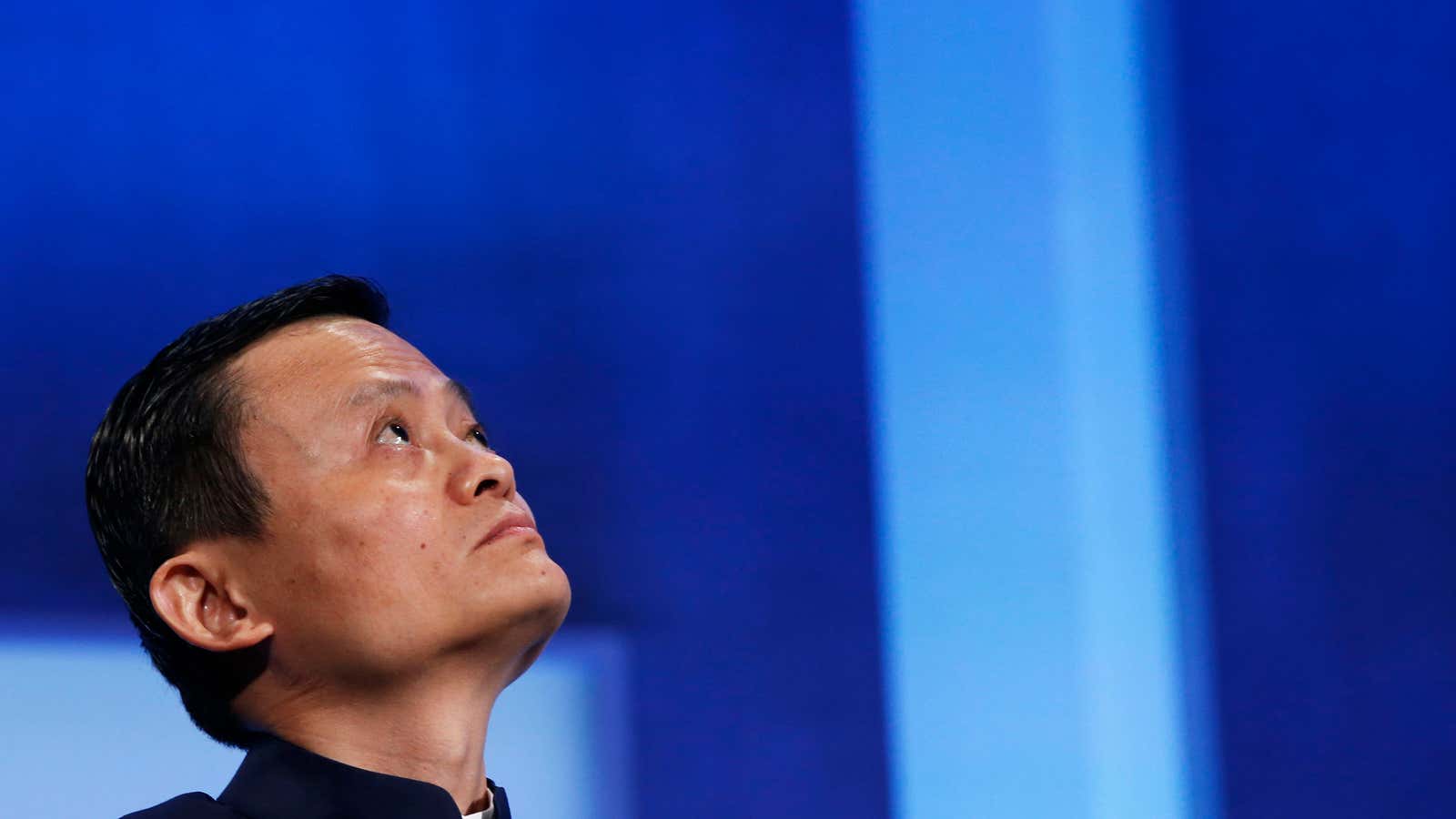With great fortune comes great responsibility—that’s the message Alibaba co-founder Jack Ma delivered in New York today about his plans for spending the windfall earnings from his company’s record-breaking IPO. On stage at the Clinton Global Initiative’s annual meeting, he told Chelsea Clinton:
When you have one million dollars, you’re a lucky person. When you have 10 million dollars, you’ve got trouble, a lot of headaches. When you have more than one billion dollars, or a hundred million dollars, that’s a responsibility you have—it’s the trust of people on you, because people believe you can spend money better than the others.
Ma said his happiest days were when he was making just $20 a month. Now that he has considerably more, he says, “We only eat three meals a day, we only sleep on one bed, how can you spend money? Where’s the opportunity?”
Ma’s strategy is to spend according to the belief that “what’s happening today is going to cause a 10-years [sic] result.” And when Ma thinks about the present and future of China, he’s thinking about environmental pollution. “The polluted water, the airs, unsafe food… 10 years later, millions and millions of people in China will have health problems. So we should invest money on that.”
Ma has set up a charitable trust, funded by Alibaba share options, at the beginning of 2014: it is now worth $3 billion. His statements since then, including those today, indicate he plans to focus on the environment in China.
“If we don’t give up, in 15 years China will have a change. We will have blue air, blue skies, clean water,” Ma said. ”People say, ‘Forget about it, China is hopeless, there’s no chance we can [clean up the water and the air],'” he added. But, “people said that about e-commerce in China 15 years ago.”
On a conference call with reporters this weekend, Clinton said “this is an incredibly important moment in China” regarding civic engagement. “Jack Ma has a chance to totally change the landscape now, and not only with the money that he will be able to invest in non-governmental activities, but also in creating space” for others who wish to do NGO work there. Clinton has met with Ma a few times; they spoke when Clinton last visited China, and Ma has repeatedly brought his management team to the Clinton office in Harlem to learn about the Clinton Foundation’s work. Ma has also discussed philanthropy with Bill Gates.
“He’s been thinking about this for years,” said Clinton. “He’s got the credibility to deal with a lot of these issues, and I know how serious he is about it and he’s gone out of his way to try to figure out what other people are doing and how he can have the greatest impact.”
Clinton hopes Ma will invigorate charitable giving over the internet in China. Global donations to disaster relief efforts have been facilitated online and via text messages, and more and more everyday giving to charities occurs online. “What do they have, like 300 million people a week doing business on Alibaba?” Clinton asked on the phone, re-emphasizing that he thinks Ma will “have a big empowering impact on other people who don’t have nearly as much money but can have make a big difference if they all get together. I think the chances of his being able to change China for the better are quite high.”
